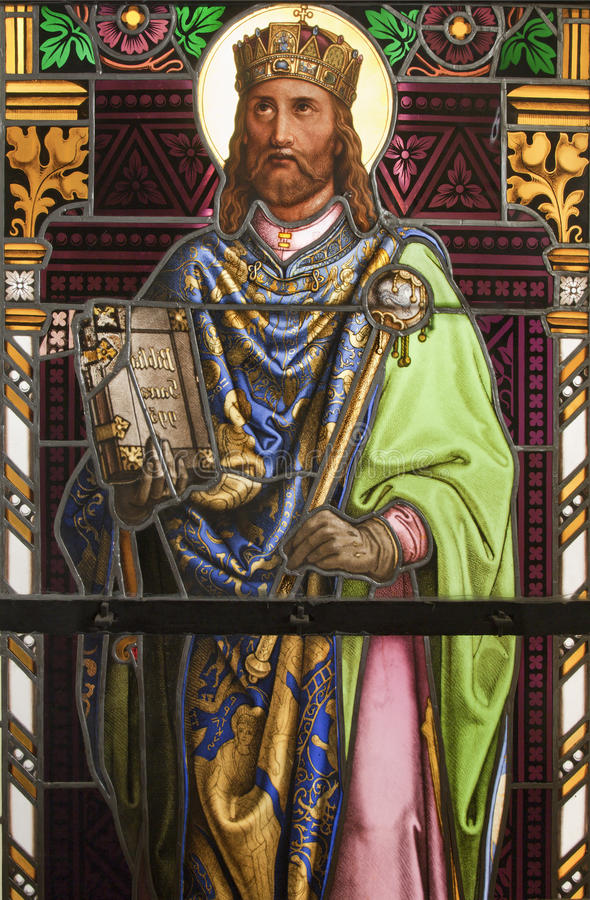St. Stephen of Hungary: A Warrior for Christ in an Age of Compromise

On August 16, the Church honors St. Stephen of Hungary, a king who forged an earthly kingdom in order to secure an eternal one. Stephen is no fairy-tale monarch; he is a warrior-king who battled pagan rebellion, entrenched his land in Christian foundations, and died entrusting his kingdom to the Virgin Mary. For men in our age of chaos and confusion, his life is a roadmap of masculine strength guided by grace.
The Birth of a King
Born around 975 and baptized Vajk, Stephen’s destiny was foreshadowed before he entered the world. His mother Sarolt saw in a vision that her son would lead Hungary into the light of Christ. Baptized with his father by St. Adalbert of Prague, he received the name Stephen in honor of the Church’s first martyr. From the beginning, his mission was clear: he was to die to self and live for Christ.
As a young man, Stephen’s path was marked by war. Pagan factions resisted his father’s Christianity, and when Stephen ascended to power, civil war broke out. Stephen fought ruthlessly, but not for conquest’s sake. His cause was for Christ. He fought not to enrich himself, but to uproot pagan worship and enthrone the Cross in Hungary.
In the year 1001, Stephen was crowned Hungary’s first Christian king. The crown was sent by Pope Sylvester II himself, symbolizing that Stephen ruled not by his own authority, but as a son of the Church. With the papal crown and cross, he declared Hungary’s allegiance not to idols or earthly power, but to Christ the King.
The King Who Built a Kingdom for Heaven
Stephen built his kingdom through battles and by establishing foundations. He established dioceses, invited missionaries, and ordered that every tenth village build a church with a priest to minister there. He outlawed pagan rituals, sanctified Christian marriage, and instituted tithing to support the clergy and the poor.
Stephen also embodied the Gospel mandate of service. He often disguised himself to bring alms to the poor personally. When attacked during one of these secret acts of mercy, he refused to abandon the mission. This was a king who wielded power, but stooped in humility.
Entrusting His Kingdom to Mary
Stephen died on August 15, 1038—the Feast of the Assumption. With his last breath, he entrusted his kingdom to the Blessed Virgin Mary, consecrating Hungary as “Regnum Marianum,” the Kingdom of Mary. This act made Hungary unique in Christendom: its king laid his nation at the feet of the Queen of Heaven.
This gesture remains a model for men today. For all our plans, victories, and authority, the true test of a man is his surrender. Real kingship doesn’t cling to control but it entrusts all to God through Mary.
Quotes and Teachings that Still Challenge Men
1. St. Stephen’s Admonitions to His Son Emeric
Before his death, Stephen wrote a spiritual testament to his son, St. Emeric. His words are timeless for every father, husband, and leader:
“Be merciful to all, not only to the faithful, but also to the unbelievers, that you may lead them to the faith. Be humble, gentle, and honorable. Pride is the root of all sin, and humility is the foundation of all virtue.”
This is not soft sentiment, it is war counsel. Stephen knew that humility is the first weapon of a Christian warrior. Pride, the sin of Satan, breeds division and destruction. For men, this is a rallying cry: if you want to lead, begin on your knees.
He also exhorted his son on prayer:
“Continuous prayer is purification and remission of sins. Through prayer you will find the strength to govern wisely.”
Here is a king commanding his son that prayer is not optional. It is the engine of strength. Men who abandon prayer abandon the fight. Prayer is the shield, the sword, and the supply line of a spiritual warrior.
2. Christ’s Call to Servant Leadership
Stephen lived John 13:14-15:
“If I then, your Lord and Teacher, have washed your feet, you also ought to wash one another’s feet. For I have given you an example, that you also should do as I have done to you.”
As king, Stephen could have ruled with iron force alone. Instead, he imitated Christ by serving the poor, washing the feet of his kingdom. For men today in all walks of life, whether CEOs, soldiers, or fathers, this is the standard. True authority is service. Leadership isn’t domination but laying down one’s life.
3. Pope St. John Paul II on Stephen
On his pilgrimage to Hungary in 2000, St. John Paul II praised Stephen as the man who established his kingdom on Christ:
“At the dawn of the millennium, we must look with admiration to St. Stephen, who founded the State on the firm rock of Christian values and bound it by close ties to the Chair of Peter. May his example inspire men to remain steadfast in their fidelity to Christ and His Church.”
For men today, living in a fractured and relativistic world, this is a direct challenge: are you building your life, your family, and your work on Christ or on shifting sand?
4. The Lesson of the Cross
St. Stephen’s motto was clear: “No further than the Cross.” His reign and legacy show that the Cross is both the boundary and the source of a man’s strength. For modern men surrounded by comfort culture, Stephen’s words are a thunderclap: do not seek beyond the Cross. There you will find manhood, mission, and eternity.
Patron Saint of Builders
St. Stephen is the patron of Hungary, kings, masons, stonecutters, and bricklayers. Why? Because he laid spiritual and physical stones to build Christ’s kingdom. He also intercedes for families in danger of losing children, reminding us that true fatherhood is always protective and sacrificial.
For men today, these patronages are striking. We are called to be builders—bricklayers of faith, protectors of life, defenders of our homes. Every man is a mason, laying one brick at a time through prayer, discipline, sacrifice, and example.
How Men Can Live His Legacy Today
Defend the Faith Boldly. Like Stephen, confront paganism in our time—be it pornography, relativism, secularism, or apathy. Do not compromise.
Build Foundations. In your family, insist on prayer, catechesis, and sacramental life. These are the stones of the household Church.
Serve with Humility. Be accessible to your wife, your children, your coworkers. Leadership is servant-first.
Entrust All to Mary. Stephen’s last act must be our daily act: hand over your kingdom—your work, your family, your mission—to the Queen of Heaven.
Conclusion: Men, Be Kings Like Stephen
St. Stephen of Hungary was no passive ruler. He was a man of war, a man of prayer, service, and of surrender. He embodies every virtue Catholic men need today.
Brothers, the battle is raging. Do not hide. Take up Stephen’s mantle: fight for the Faith, build your family as a domestic Church, serve as a humble leader, and entrust your life to Mary. That is the path to holiness. That is the path of kings.
St. Stephen of Hungary, pray for us.







